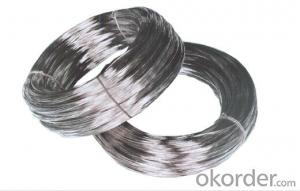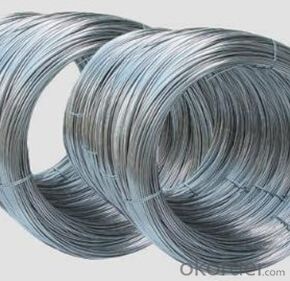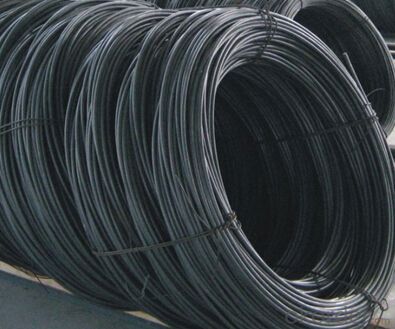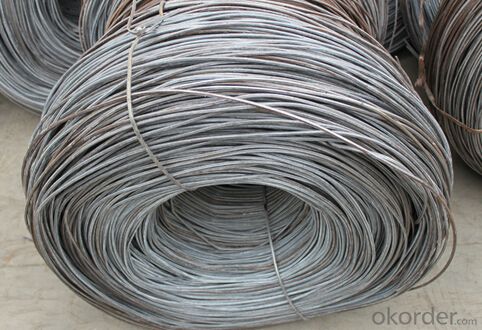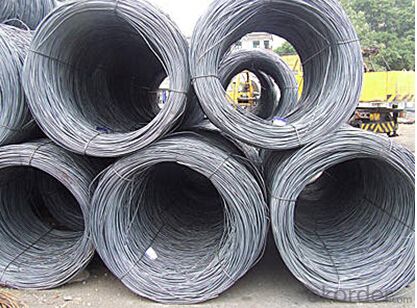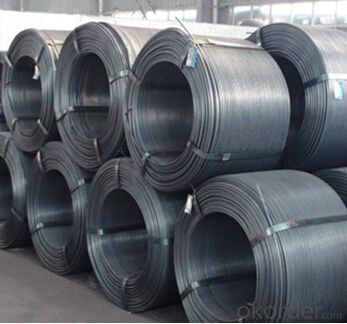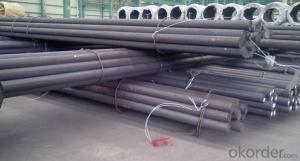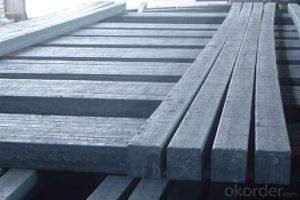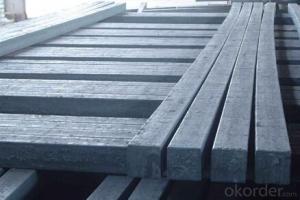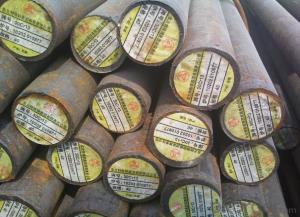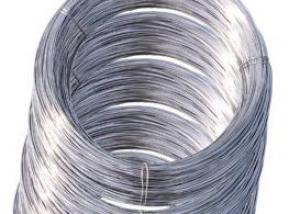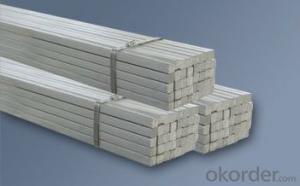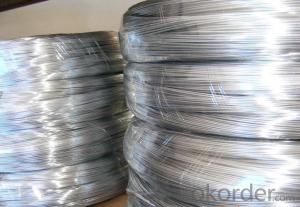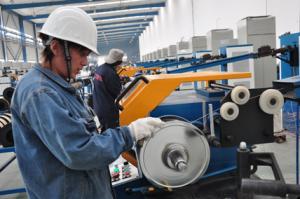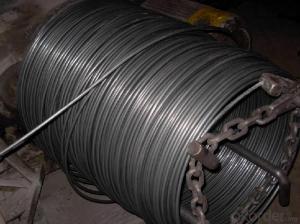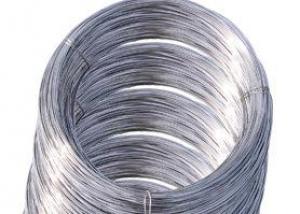Grade 1.4104 Stainless Steel Wire Rod 12crmos17/sus430
- Loading Port:
- Tianjin
- Payment Terms:
- TT OR LC
- Min Order Qty:
- 1 m.t.
- Supply Capability:
- 10000 m.t./month
OKorder Service Pledge
Quality Product, Order Online Tracking, Timely Delivery
OKorder Financial Service
Credit Rating, Credit Services, Credit Purchasing
You Might Also Like
Specification
Type:
Carbon Steel,Spring Steel,Bearing Steel,Gear Steel,Deformed Steel,Stainless Steel,Alloy Steel
Shape:
Steel Coil,Steel Sheet,Steel Wire Rod,Steel Flat Bar,Steel Square Bar,Steel Angle,Steel Round Bar,Steel Billets
Technique:
Hot Rolled,Cold Rolled,Cold Drawn,ERW,Forged,Saw,Extruded,EFW,Spring
Surface Treatment:
Galvanized,Coated,Copper Coated,Color Coated,Oiled,Dry,Chromed Passivation,Polished,Bright,Black,PVDF Coated
Certification:
ISO,SGS,BV,IBR,RoHS,CE,API,BSI,UL
Thickness:
3.0mm ~ 10.0mm
Width:
3.0mm ~ 10.0mm
Length:
In coils
Outer Diameter:
3.0mm ~ 10.0mm
Net Weight:
2m.t.
Packaging:
Seaworthy packaging
Grade 1.4104 Stainless Steel Wire Rod 12crmos17/sus430
Detailed Information of the Grade 1.4104 Stainless Steel Wire Rod 12crmos17/sus430
| Name | Hot Rolled High Carbon Wire Rod |
| Shape | Round Bar/Square Bar/Flat Bar/Plate/Wire |
| Standard | GB/ASTM/SAE/AISI/DIN/JIS/EN/BS |
| Surface Treatment: | Black/Peeling/Polished/Machined |
| Delivery Condition: | Hot Rolled or Forged/Peeled or Black Surface |
| Test | SGS/UT 100% Elements Testing |
| Certificate: | ISO/Mill Certificate |
| Service: | 24 hours online service / |
| more than 20 years trading and manufacture | |
| Quality Assurance: | the third party inspection, such as SGS, BV, TUV…etc. is acceptable |
| Packaging Details: | Seaworthy Packaging or as per customer's packing instruction |
Chemical Composition of the Grade 1.4104 Stainless Steel Wire Rod 12crmos17/sus430
| Material | C %(≤) | Mn % (≤) | P % (≤) | S % (≤) | Si % (≤) | Cr% (≤) |
| 430 | 0.08 | 1 | 0.04 | 0.03 | 1 | 16.00-18.00 |
Company Introduction the Grade 1.4104 Stainless Steel Wire Rod 12crmos17/sus430
CNBM International Corporation is the most import and export platform of CNBM group(China National Building Material Group Corporation) ,which is a state-owned enterprise, ranked in 270th of Fortune Global 500 in 2015.
With its advantages, CNBM International are mainly concentrate on Cement, Glass, Iron and Steel, Ceramics industries and devotes herself for supplying high quality series of refractories as well as technical consultancies and logistics solution.
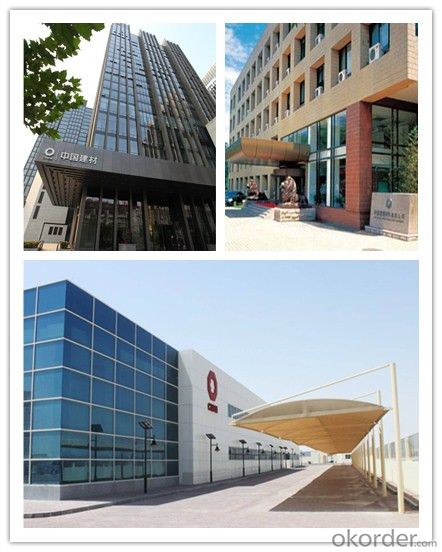
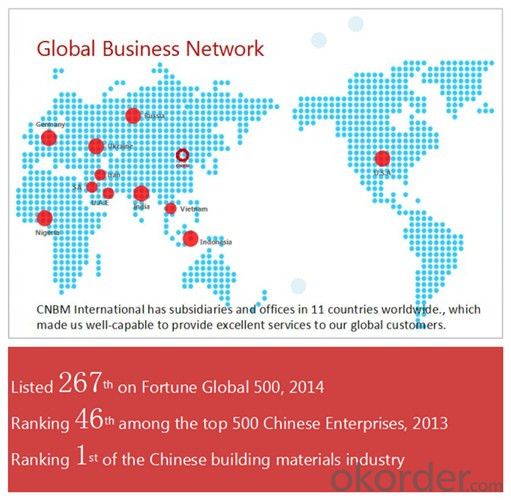
| After-sale service | CNBM provides the services and support you need for every step of our cooperation. We’re the business partners you can trust; you can relax and get on with doing business. |
| For any problem, please kindly contact us at any your convenient time, we’ll reply you in our first priority within 24 hours | |
| Advantages | Industry experience over 20 years. |
| Shipment of goods -More than 70 countries worldwide. | |
| The most convenient transport and prompt delivery. | |
| Competitive price with best service. | |
| High technical production line with top quality products. | |
| High reputation based on best quality products. |
Packaging & Delivery the Grade 1.4104 Stainless Steel Wire Rod 12crmos17/sus430
| Packaging Detail | Sea worthy packing /as per customer's packing instruction |
| Delivery Detail | 15 ~ 40 days after receiving the deposit |
Products Show
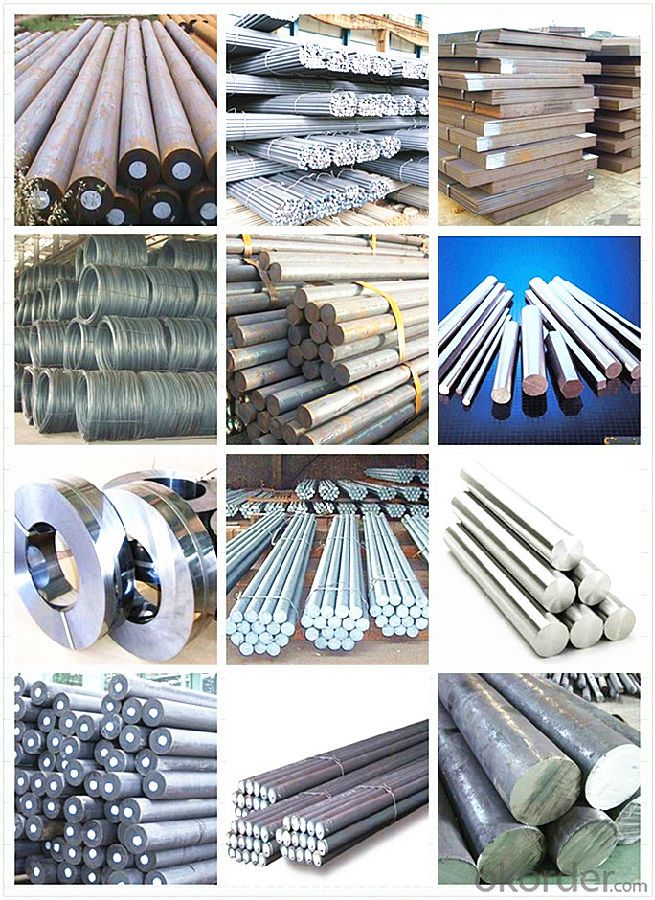
FAQ:
| Are you a trader or manufacturer? | Manufacturer |
| What’s the MOQ? | 3 metric ton |
| What’s your delivery time? | 15-35 days after downpayment received |
| Do you Accept OEM service? | Yes |
| what’s your delivery terms? | FOB/CFR/CIF |
| What's the Payment Terms? | 30% as deposit,70% before shipment by T/T |
| Western Union acceptable for small amount. | |
| L/C acceptable for large amount. | |
| Scrow ,Paybal,Alipay are also ok | |
| Why choose us? | Chose happens because of quality, then price, We can give you both. |
| Additionally, we can also offer professional products inquiry, products knowledge train (for agents), smooth goods delivery, excellent customer solution proposals. | |
| What's your available port of Shipment? | Main Port, China |
| What’s your featured services? | Our service formula: good quality+ good price+ good service=customer's trust |
| Where are your Market? | Covering more than 160 countries in the world |
- Q: What are the challenges in manufacturing special steel?
- Some of the challenges in manufacturing special steel include the high cost of raw materials, the complex and precise production processes, ensuring consistent quality and performance, meeting specific customer requirements, and staying up-to-date with rapidly advancing technologies and industry standards. Additionally, the demand for customization and shorter lead times can also present challenges in terms of production planning and logistics.
- Q: How does wear-resistant steel protect against abrasive wear?
- Wear-resistant steel protects against abrasive wear by having a high hardness and toughness, which allows it to withstand the abrasive forces and prevent material loss or surface damage. The steel's composition and heat treatment provide it with enhanced resistance to abrasive particles, reducing wear and extending the lifespan of the material.
- Q: How does special steel contribute to the chemical processing industry?
- Special steel contributes to the chemical processing industry by offering exceptional resistance to corrosion, high temperatures, and pressure. It is used in the production of various equipment such as valves, pipes, reactors, and heat exchangers, ensuring the safe and efficient handling of corrosive chemicals. Additionally, the unique properties of special steel enable the construction of durable and reliable structures, minimizing downtime and maintenance costs in chemical plants.
- Q: What are the requirements for special steel used in mining equipment manufacturing?
- The requirements for special steel used in mining equipment manufacturing typically include high strength and toughness to withstand the harsh operating conditions, excellent wear resistance to endure abrasive materials, good corrosion resistance to resist chemical exposure, and high fatigue strength to withstand repeated loading. Additionally, the steel should have good weldability and machinability to facilitate fabrication processes.
- Q: How is special steel used in the production of valves and fittings?
- The unique properties and characteristics of special steel play a vital role in manufacturing valves and fittings. These components are essential in industries like oil and gas, chemical, petrochemical, and power generation. Also known as alloy steel, special steel offers superior strength, corrosion resistance, and durability compared to regular carbon steel. These qualities make it an ideal material for creating valves and fittings that can withstand high pressure, extreme temperatures, and corrosive environments. In valve production, special steel is commonly used for critical parts like the valve body, bonnet, stem, and more. The valve body houses internal components and seals the flow of fluids or gases. Special steel's high tensile strength and resistance to deformation ensure that the valve body can handle pressure and maintain a tight seal, preventing leaks. Similarly, special steel is used in manufacturing fittings, which connect pipes or other equipment in fluid or gas systems. Fittings made from special steel can endure high pressures, temperature changes, and corrosive media, guaranteeing a reliable and leak-free connection. Special steel alloys, like stainless steel or duplex stainless steel, are often chosen for their excellent corrosion resistance. They can withstand harsh environments, including exposure to chemicals, saltwater, and acidic or alkaline substances. This corrosion resistance is critical in preventing valve and fitting failure, maintaining system integrity, and avoiding costly downtime or accidents. Furthermore, special steel can be customized to meet specific requirements, such as resistance to high or low temperatures or exceptional wear resistance. This allows manufacturers to tailor valves and fittings based on the particular application and operating conditions, ensuring optimal performance and longevity. Overall, the exceptional strength, corrosion resistance, and durability of special steel make it a widely used material in valve and fitting production. These properties enable valves and fittings to perform reliably in demanding environments, ensuring the safe and efficient operation of various industries.
- Q: What are the common grades of special steel?
- The specific application and desired properties determine the varying common grades of special steel. Some frequently utilized grades are: 1. Stainless steel, an alloy resistant to corrosion containing a minimum of 10.5% chromium. Grades like 304, 316, and 410 possess exceptional corrosion resistance, high strength, and good formability, making them prevalent in various industries. 2. Tool steel, specifically designed for toolmaking, renowned for its high hardness, wear resistance, and toughness. Common grades such as D2, A2, O1, and S7 possess specific properties suitable for diverse applications. 3. High-speed steel (HSS), a type of tool steel retaining its hardness and cutting ability even at high temperatures. It frequently finds use in cutting tools like drills, end mills, and taps. M2, M35, and M42 are a few well-known HSS grades. 4. Alloy steel, made by incorporating different alloying elements to enhance specific properties. Grades like 4140, 4340, and 8620, known for their high strength, toughness, and wear resistance, are commonly utilized in industries such as automotive, aerospace, and machinery. 5. Spring steel, renowned for its ability to restore its original shape after bending or twisting. Grades like 1095 and 5160 are commonly employed in the manufacturing of springs, suspension components, and hand tools. These examples merely scratch the surface of the numerous available grades of special steel, each possessing unique properties and applications. It is vital to select the appropriate grade based on the specific requirements of the intended usage.
- Q: Can special steel be used in the textile industry?
- Yes, special steel can be used in the textile industry. Special steel alloys, such as stainless steel, can be used for textile machinery components like needles, pins, and various parts of looms. These steel alloys provide excellent strength, corrosion resistance, and durability, making them suitable for demanding textile manufacturing processes.
- Q: How does special steel contribute to reducing product failure?
- Special steel contributes to reducing product failure by providing enhanced strength, durability, and resistance to various external factors such as corrosion, wear, and extreme temperatures. Its unique properties make it suitable for critical components and applications where failure could have severe consequences. By using special steel in the manufacturing process, products are less likely to fail prematurely, ensuring reliability, safety, and ultimately reducing the risk of accidents or malfunctions.
- Q: How does special steel contribute to the agricultural machinery industry?
- Special steel contributes to the agricultural machinery industry by providing high-strength, durable, and corrosion-resistant materials for the manufacturing of various agricultural equipment and machinery. This type of steel is specifically designed to withstand the harsh conditions and heavy workloads involved in agricultural operations. It helps increase the lifespan and performance of agricultural machinery, ensuring efficient and reliable operations on farms, which ultimately enhances productivity and sustainability in the industry.
- Q: Can special steel be used in the manufacturing of sports equipment?
- Yes, special steel can be used in the manufacturing of sports equipment. Special steel refers to a type of steel that has been specifically designed and engineered to possess certain characteristics and properties that make it suitable for various specialized applications. These characteristics can include high strength, durability, resistance to corrosion and wear, and the ability to withstand extreme conditions. In the manufacturing of sports equipment, special steel can be used in a variety of ways. For example, it can be utilized to create the shafts of golf clubs or tennis rackets, where its high strength and stiffness are crucial for optimal performance. Special steel can also be used in the construction of sports equipment such as bicycles, where its lightweight yet strong properties are highly desirable. Additionally, special steel can be employed in the manufacturing of sports equipment accessories, such as hooks, buckles, or fasteners. These components often require high tensile strength and corrosion resistance, and special steel can provide these properties, ensuring the longevity and reliability of the equipment. In summary, special steel can indeed be used in the manufacturing of sports equipment, thanks to its unique properties that enhance performance, durability, and overall quality.
Send your message to us
Grade 1.4104 Stainless Steel Wire Rod 12crmos17/sus430
- Loading Port:
- Tianjin
- Payment Terms:
- TT OR LC
- Min Order Qty:
- 1 m.t.
- Supply Capability:
- 10000 m.t./month
OKorder Service Pledge
Quality Product, Order Online Tracking, Timely Delivery
OKorder Financial Service
Credit Rating, Credit Services, Credit Purchasing
Similar products
Hot products
Hot Searches
Related keywords
